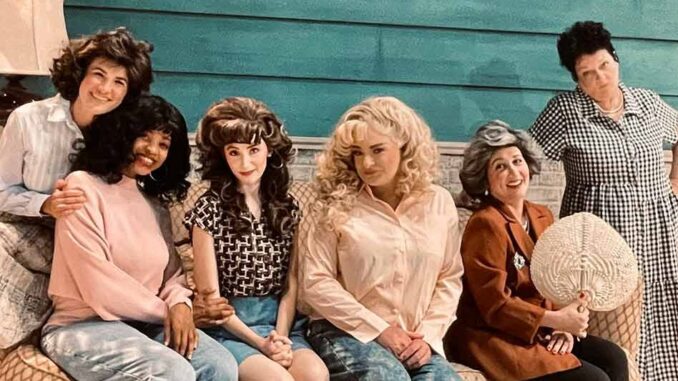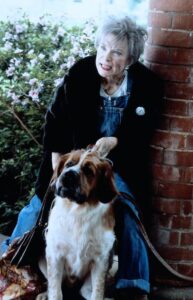
The playwright and screenwriter reflects on the Southern film that shocked the world
Writer Robert Harling at Oaklawn Plantation, his farm near Natchez, Louisiana.
Editor’s note: The following is an excerpt from the book G&G S Is for Southern: A Guide to the South, from Absinthe to Zydeco. A compendium of Southern life and culture, the book contains nearly five hundred entries covering every letter of the alphabet.
Before the play or movie was created, “steel magnolia” was simply a description of Southern women. I’ve heard it all my life. It means something that seems fragile and fragile but has unexpected strength. When I wrote this play in 1987, the title seemed very appropriate. The story of Steel Magnolias is completely true, inspired by a family tragedy. My sister, Susan, recently passed away from complications of diabetes, and it was important for me to celebrate her, my mother, and the loving community of neighborhood women who supported them through the good times. as well as difficulty.
The sublime Margo Martindale, the actress with whom I play Truvy, reminded me that when we were rehearsing for the play’s opening in New York, we all thought I had written a play. We don’t know if there will be “laughter through the tears” or that these characters — wise and witty women in a small-town Southern beauty shop — will capture the imaginations of young people. theater goers in New York. The play was a success and soon Hollywood came calling. Every actress you can think of attended the show. They had to close the street because it was too crowded when Elizabeth Taylor showed up. Cher was there. Lucille Ball. I had tea with Bette Davis! I could write a play about that experience alone. Then the director of the film adaptation, Herbert Ross, assembled the cast of any playwright’s dreams: Sally Field, Shirley MacLaine, Dolly Parton, Olympia Dukakis, Daryl Hannah, and a new actor. well, Julia Roberts, who will play my sister.
When I started writing scripts, creating a simple, one-set play, aesthetically appropriate for the big screen was a challenge I loved. Now audiences will get to see all the events and oddities that in the theater the customers of Truvy’s Beauty Spot were just discussing. My dad, who Tom Skerritt will now play, actually shot birds in trees. My sister’s wedding indeed had a bleeding armadillo groom’s cake. (Years later, the New York Times credited Steel Magnolias with reviving the popularity of red velvet cake.)

The producer, Ray Stark, decided to film in my hometown of Natchitoches, Louisiana, where the story takes place: instant authenticity. It’s strange to see Dolly, Shirley, Sally and the rest of the cast in the homes, grocery stores and churches where their real-life character inspirations guided their daily lives. Surname. All agreed that the experience enhanced their roles. Sam Shepard, who came to town to play Dolly’s husband, pointed out this was a strange experience; writing a play about a family’s experiences in their hometown, then having a movie made in that same town with that same cast was a blessing. Shirley MacLaine doesn’t think it was luck. She was pretty sure it all happened because Susan wanted her story told. Shirley is always right.
After the movie came out in 1989, life became a whirlwind. Headache thing. We had a royal introduction in London for Prince Charles and Princess Diana. We opened the Berlin Film Festival as the wall was about to fall. After the opening night of the film festival, Ray Stark arranged an additional screening in East Berlin. It was the first time a paid Western film had been shown in East Germany since the wall went up, and the line of East Berliners waiting for tickets was as long as I could see. It was extremely touching to sit and watch the movie with them. It was dubbed into German and the audience did not know who the actors were, except for Dolly. But they laughed in all the places the American audience did. And they cried. It blew me away. After decades of the Iron Curtain and Communist government, their first glimpse of a Western film was of life in a Southern town. That’s what really causes headaches.
After the film, awareness of the play spread around the world. It has been translated into many languages. It’s a crazy ride to hear someone’s conversation in Chinese. It was thrilling to know that my sister’s story touched the audience in Croatia and made the Egyptian audience laugh. As I write this, a tour of an Indian production is underway in Bombay. The Southern program continues.
People keep asking, “Why is Steel Magnolias still so popular after thirty years?” I can’t take any real credit. I just wrote down what happened. It’s ultimately my sister’s story, with quintessentially Southern characters
